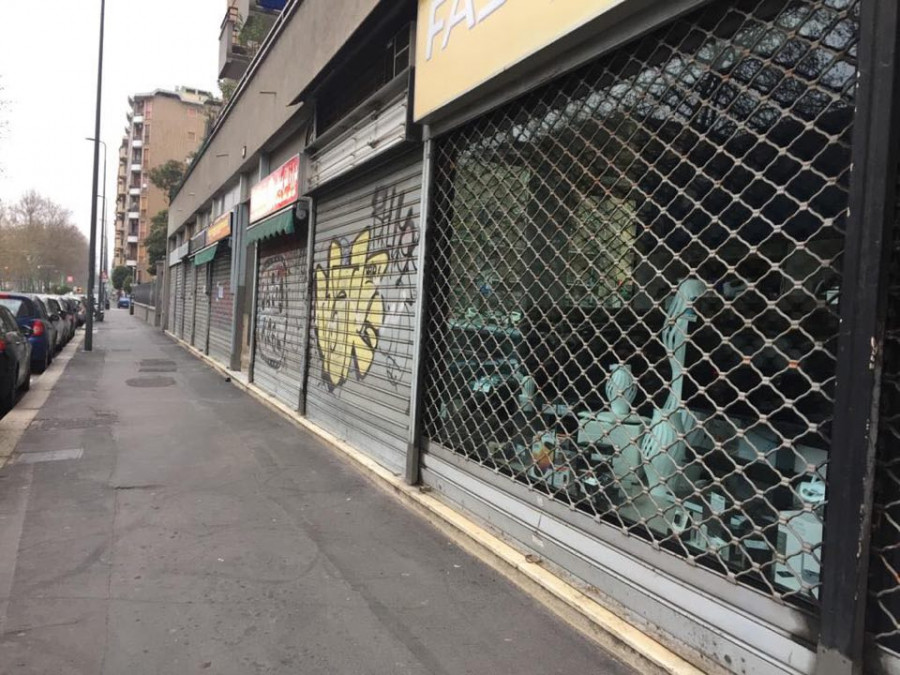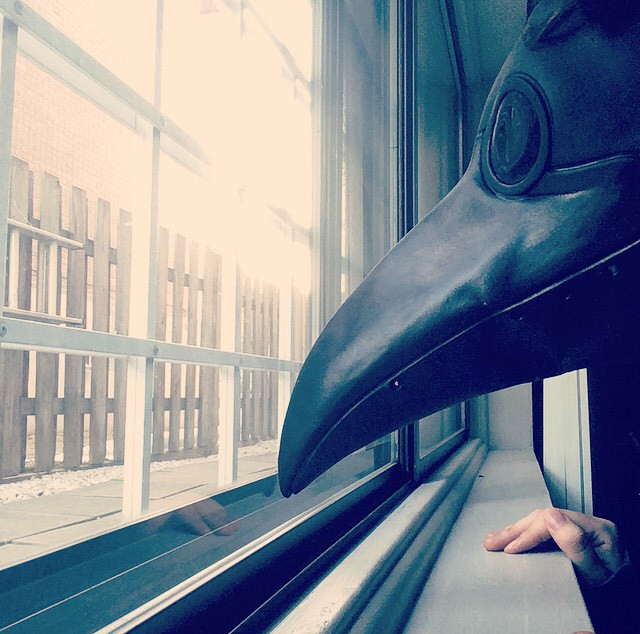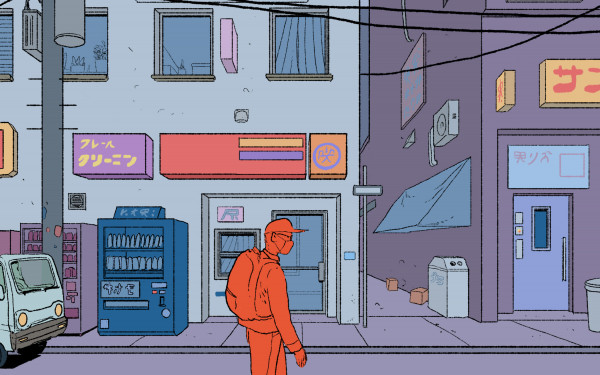How to Remain Calm in the Midst of a Global Pandemic
A Cross-Cultural Exploration of the Coronavirus’s Effects
As I scrolled through my Facebook news feed one morning, I quickly became overwhelmed by an abundance of frightening imagery illustrating the devastating effects of COVID-19.
My heart started beating erratically, and for the first time since the beginning of my voluntary two-week quarantine, I felt trapped. My room, which had once been a haven from the tumultuous elements of the outside world, now felt more like a prison.
In order to sort through these bewildering emotions and cope with my isolation, I decided to investigate how people living in Italy and Hong Kong have responded to the virus. Working on this project has provided me with a much needed sense of structure, which I felt was previously lacking in my daily routine.
On Dec. 31, 2019, China alerted the World Health Organization of mysterious cases of an unusual pneumonia arising in Wuhan. Even after the novel coronavirus was discovered, few could have predicted this would end up being one of the largest pandemics in recent history.
As of April 13, 2020, the virus has spread to 185 countries and territories, with more than 1.9 million confirmed cases and nearly 120,000 deaths, according to data from John Hopkins University.
In part because it has a relatively old population and a high percentage of multi-generational households, Italy currently has the second-highest number of COVID-19 deaths in the world after the United States.
“In Italy it is a lot like a war zone, but with an invisible enemy,” said Fiamma Bassani, who is a retired artist living in Milan, Italy.
“The only thing which is missing are the bombs falling on us.”
Experts have been critical of Italy’s slow implementation of social distancing measures and the government’s initially lax response to the virus. When the first cases were announced, only some municipalities in the province of Lodi, which is located in northern Italy near the city of Milan, were placed under quarantine.
Bassani, and many experts, believe that this significantly contributed to the spread of the disease.
“We are a bit more parochial in Italy. We think a lot more about what’s happening in our city, but now that the virus has gotten worse, everyone is focused on saving Italy as a whole,” said Bassani.
In contrast to this response, Hillary Leung, a Hong Kong resident, said her region’s government acted quickly to prevent the disease from spreading.
“The government closed the schools very early, told their employees to work from home, and encouraged social distancing,” she explained.
The measures that were put in place in Italy to prevent the virus from spreading have been some of the most drastic in the world.
For example, all Milanese people are required to carry a document with detailed information on every location they have recently visited and where they plan to go while they are in public.
Only essential outings to businesses such as grocery stores, pharmacies, and doctors’ offices are allowed under the current policy.
Police officers also frequently perform checks to ensure these safety measures are being followed.
I was somewhat shocked to learn from Bassani that the government has decided to impose extremely harsh penalties on anyone who has violated these directives.
For example, leaving the house without the required documents could result in a fine of about 200 euros. Violating a quarantine could also lead to a 12-year prison sentence.
_720_960_90.jpg)
This wristband contains a QR code that must be scanned with a smartphone app. Since this device does not capture their precise location and only monitors whether they have left their home, it does not pose any threat to their privacy. Many restaurants also carry hand sanitizer and people with symptoms have been prohibited from entering some commercial areas, said Leung.
According to some experts, the reason that there has been a general downward trend in the number of cases in many parts of Asia is that, in places like Hong Kong, people have been more diligently following the health guidelines.
When asked about what precautions she has taken to avoid contracting the virus, Leung explained that she tries to avoid public transportation and stays home more often than not. “I also wear a mask and carry hand sanitizers, which I use quite diligently,” she said.
Although Bassani is relatively optimistic that the situation will gradually improve in Italy, she believes that European governments are still not doing enough to prevent the disease from spreading, suggesting travel bans should be more aggressive.
Similarly, Leung explained that many Hongkongers were frustrated by the government’s initial unwillingness to completely close off the borders with mainland China. However, Hongkongers also acknowledged that doing so would be challenging.
“Because Hong Kong has so many ties with China, it’s very difficult to completely close the border,” said Leung. “We have businesspeople going back and forth every day. I think the government did the best they could.”
From a sociological perspective, I am worried that COVID-19 will lead to an increase in xenophobic sentiments and a newfound skepticism towards globalization. Several prominent conservative thinkers have already used this crisis as an opportunity to promote a nationalistic agenda.
For example, President Donald Trump unsurprisingly attempted to gain cheap political points by using the politically incorrect term “Chinese virus” rather than the official scientific term for the disease. It was also revealed by a CBS reporter that a White House official had used the more explicitly racist term “Kung Flu.”
Although our primary focus when discussing the virus should be on the health hazards, we should not dismiss the psychological, and in some cases even physical harm, that this type of rhetoric causes to Asian communities around the world.
“There has definitely been an increase in racism towards Asians,” said Leung. “I have heard a lot of horrible stories about people living abroad being beaten up. I think Trump’s behavior is insensitive and definitely helps breed racist sentiments.”
The FBI has warned the public that there will likely be a rise in potential hate crimes towards the Asian community due to the virus, according to a document obtained by ABC News.
In order to combat this issue, New York City’s attorney general, Letitia James, announced that a hotline will be made available to report hate crimes and biased incidents against Asian-Americans.
Historically, it was not uncommon for various ethnic minorities in Europe, namely Jews, to be the target of acts of violence during disease outbreaks such as the bubonic plague.
The recent increase in weapons sales throughout the United States illustrates how fear can promote irrational beliefs and behaviours in times of crisis.
For most people, one of the hardest aspects of this situation is dealing with the negative psychological consequences of being far away from their friends and loved ones.

Shortly after they arrived in Montreal from Fort Lauderdale, Florida, my grandparents decided to follow the government’s recommendations and undergo a two-week quarantine, which prevented them from leaving the house and spending time with their family. Since I live with them, as a precautionary measure, I quarantined myself in the basement.
To prepare for this period of self-isolation, I got a mini-fridge from my father and moved the microwave downstairs.
It was somewhat difficult to anticipate all the supplies that would be required for this two-week period.
To avoid travelling to a grocery store, I decided to also order all food and other supplies online. Due to a limited amount of space in the mini-fridge, my grocery list focused on non-perishable items such as granola bars, popcorn, canned goods, and chips.
One of the biggest challenges I experienced was being unable to access the stove and oven, since they are in the upstairs section of the house.
Luckily, there is a small section of the mini-fridge for frozen goods that I used to store microwavable meals. When ordering additional items, it was necessary to inform the delivery personnel to leave them in front of the garage, rather than using the front door.
Although the virus poses a minimal health risk to most young people, the primary reason for my self-quarantine was to avoid transmitting the illness to other members of my family and the general public.
My anxiety about the virus is greatly intensified by the fact that it poses a significantly greater health risk to my family, since many of them suffer from asthma.
Despite all the precautionary measures she has taken, there is a lingering fear in the back of my mind that my 87-year-old asthmatic grandmother will somehow manage to contract it.
Due to her age and existing health conditions, the disease would likely be fatal for her.
It was truly gut-wrenching to learn that there was a proposal drafted for the most affected regions of Italy that would allow doctors to deny intensive care units to anyone with the virus who is over 80 years old and in poor health, when resources are scarce.
Doctors have already had to deny care to those less likely to survive. It is difficult for me to imagine that if my grandmother were living in Italy and infected with the virus, she could be denied the treatment necessary to recover from the disease.
Although it may be unavoidable under certain circumstances, what I find most disturbing about this type of policy is that it gives medical practitioners the authority to decide which lives are “worth saving.”
When I discussed these emergency measures with Bassani, she was extremely skeptical that this type of policy could ever exist in Italy.
“The media is making stuff up about the virus and it’s very stressful. Every half hour we hear something about the virus. It’s the only thing that’s on the news!” said Bassani indignantly.
Most news about COVID-19 has focused on grim, and in some instances, catastrophic scenarios.
Even within the medical community, due to the rapidly evolving nature of the disease, it is sometimes difficult to obtain accurate information.
As a defense mechanism against sensationalistic rhetoric, I have vowed to try to avoid watching the news and use this self-isolation period as an opportunity to learn new things, reflect upon my life choices, and support the people around me.
I am optimistic that the Canadian government’s swift response and drastic measures will prevent the situation from escalating here.
Unfortunately, some young people are still dismissive of the virus’ severity, since they do not believe they will be affected.
Although the current mortality rate is generally low for young people, there is no way to know for sure whether the virus will evolve. It is also impossible to know how your immune system will respond to the disease.
Reckless behaviours, such as improper hand-washing, going to large social gatherings, and unnecessary travel, endanger everyone in the community.

For most people, one of the hardest aspects of this situation is dealing with the negative psychological consequences of being far away from their friends and loved ones.
Humans are naturally social creatures, and technology can only be a temporary substitute for face-to-face interactions.
For Bassani, this outbreak has been particularly challenging, since most of her immediate family lives in Canada.
“I have lost my freedom and I am living a very restricted life now,” she said. “It is no longer possible to do many of the things that I used to enjoy, like going to the beach. I am not the type of woman who likes to stay home. I do not watch many TV shows or movies and my family does not live with me.”
Luckily, despite its death rates, according to Bassani, most people in Italy have been trying to stay optimistic about the situation. In fact, this tragedy has even led many Italians to temporarily put aside their differences, she said.
“The virus has led the Milanese people to love their city and their country more. There is a greater sense of brotherhood and sisterhood because of the virus. The Italian people are singing together from their balconies,” Bassani explained enthusiastically.
It was refreshing to learn that the number of cases in Hong Kong has been steadily declining and that things are gradually returning back to normal.
Despite all the misery it has caused, one minor advantage of this pandemic is, for some of us, it has provided a temporary respite from the difficult aspects of modern life, such as following strict schedules and routines.
It has also given us a valuable opportunity to rediscover our passions and spend more time with the people we care about.
I recommend that anyone who is having trouble coping with the pandemic should try to remain optimistic and focus on their goals for the future.
Fixating on things that we have no control over can be detrimental to our physical and mental wellbeing.
In response to this pandemic, author C. JoyBell C. said, “This virus will leave us entirely newborn people. We will all be different, none of us will ever be the same again. We will have deeper roots, be made of denser soil, and our eyes will have seen things.”






_600_375_90_s_c1.jpg)
